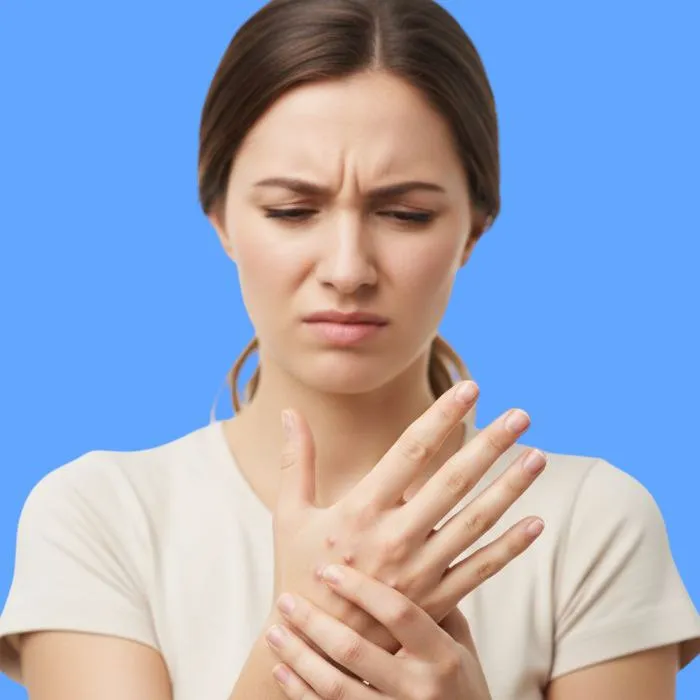What is a wart?
Warts are a common skin condition caused by a viral infection that affects the superficial layers of the skin.
What causes warts?
There are several causes of warts, including:
- Infection with the human papillomavirus (HPV).
- Using contaminated personal items.
- Direct contact with infected skin.
- Minor cuts or abrasions on the skin.
- A weakened immune system.
What are the common symptoms of warts?
A number of characteristic signs may appear, such as:
- A small, rough or smooth skin bump.
- A change in skin color.
- The presence of tiny black dots within the bump.
- Mild pain when pressing on the wart.
- Warts appearing in more than one place on the body.
When should you see a doctor?
It is advisable to consult a doctor if you notice the following:
- A rapid increase in the number or size of warts.
- Warts appearing on the face or sensitive areas.
- Pain or bleeding in the affected area.
- Home remedies failing.
- A weakened immune system or the presence of chronic diseases.
How are warts diagnosed?
Warts are easily identified through a few simple steps, such as:
- A clinical examination by a dermatologist.
- Using a magnifying glass to examine the shape of the growth.
- Taking a small sample for testing in rare cases.
- Ruling out similar skin conditions.
How are warts treated?
Several methods are available to treat warts, depending on their type and location, such as:
- Topical creams containing salicylic acid.
- Cryotherapy using liquid nitrogen.
- Electrocauterization to remove the growth.
- Laser therapy to destroy infected cells.
- Immune system support to encourage the body to fight the virus.
Can warts be cured?
In most cases, warts can be completely eliminated with appropriate treatment, through:
- Adhering to the treatment prescribed by the doctor.
- Avoiding touching the affected areas.
- Maintaining skin hygiene and keeping it dry.
- Supporting immunity with a balanced diet.
What are some tips for preventing warts?

Warts can be prevented by following some simple guidelines, such as:
- Avoid sharing personal items with others.
- Wash your hands frequently.
- Avoid touching infected skin.
- Keep your feet clean and dry.
- Strengthen your immune system with healthy habits.
What are the possible complications of warts?
Some complications may arise if treatment is neglected, such as:
- Spread of warts to multiple areas.
- Secondary skin infections.
- Scarring after removal.
- Recurrence of warts.
- Transmission of the infection to others.
Frequently Asked Questions about Warts
Are warts contagious?
Yes, they can be transmitted from person to person through touch or shared objects.
Do warts disappear without treatment?
In some cases, they may disappear spontaneously within a few months.
Is wart removal by cauterization painful?
Local anesthesia is used to minimize pain during the procedure.
Can warts recur after treatment?
Yes, if the virus remains in the skin.
Are warts dangerous?
No, but it does require treatment to prevent its spread or infection.
Article Summary
Warts are a common viral skin infection that is easily treatable if addressed early.
Personal hygiene and avoiding contact with infected individuals are among the most important preventative measures.
Maintain your immunity and consult a doctor immediately if you notice any unusual skin changes.